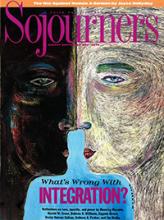On the first day of Nelson Mandela's visit to the United States, a million people came to see him. Massive numbers of people, especially from New York City's black neighborhoods, gave the South African leader the warmest and most amazing welcome anyone could remember. Gov. Mario Cuomo said it was the most emotional event he had ever seen in all his years in politics.
In the few short months since being freed from 27 years in prison, Nelson Mandela has come to symbolize more than the hope of a free South Africa. He has become an inspiration to people seeking freedom and human rights all over the world.
"To have a black man imprisoned for so long and emerge with such strength and power strengthens black people everywhere," said a black woman in the sea of humanity that lined the streets for Mandela's ticker-tape parade. Many brought their children, saying they wanted their sons and daughters to be a part of this historic moment and to be able to tell their grandchildren that they saw Nelson Mandela. When a television reporter asked a 12-year-old boy what Nelson Mandela said to him that day, the young man paused to think and then replied, "He loved me."
I was staying with friends in the South Bronx that night in order to attend a meeting the next morning of Nelson Mandela and a hundred U.S. religious leaders. I arose early and made my way across the center of Harlem en route to Riverside Church on New York's Upper West Side. When I came to the intersection of Martin Luther King Boulevard and Malcolm X Boulevard, I smiled at the thought of how happy the two great American leaders would have been on this day.
Read the Full Article
